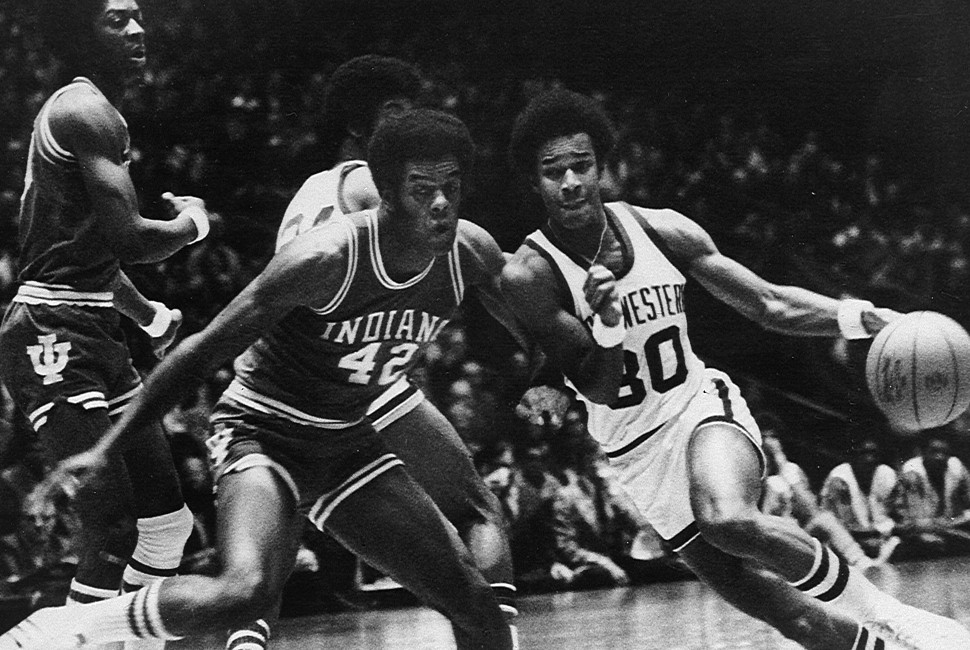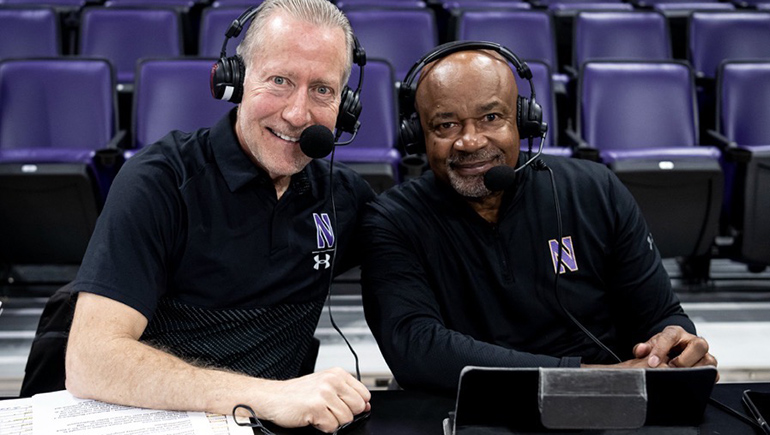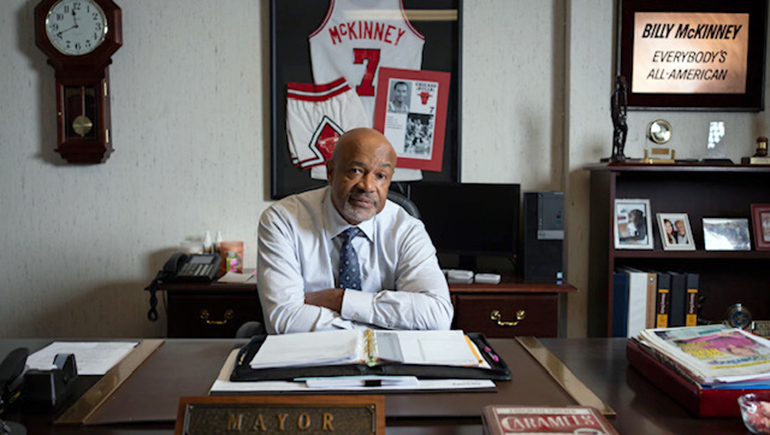One measure of a man is the impact he makes on others when he is simply being himself.
On Saturday, March 2, Northwestern will retire Billy McKinney’s Number 30, a first in any sport in the 173-year history of the university. To be sure, in the 123 years the school has fielded a basketball team, McKinney is an anomaly. As a player, and a person, he is constructed of exceptional attributes.
To appreciate who and what McKinney has done, combine the essential facts of his life. McKinney grew up one of six children with a single mother, though he never grew taller than 6-feet. Insert his years of statistical evidence that defy physical size and pedigree. Talk to nearly every person McKinney has interacted with since he dragged an iron basketball rim 10 blocks through the streets of Zion as a scrawny 13-year-old. Then listen to McKinney talk about the thousands of hours he spent launching shots at that rim, and the hundreds of hours his 6-foot-4 older brother spent teaching him the hard truths of being undersized in a game that rewards size.
Download the hundreds of first-hand quotes about McKinney’s quickness, heart, character, intelligence, fearlessness, and competitive drive. Add the leadership his mother, Elma, provided for her children despite just a sixth grade education. She taught personal responsibility by working three jobs nearly around the clock while modeling dignity with neither complaint, nor handouts. Just hard work. Her children were required to become self-sufficient, kind, and diligent. Failure in her house was a letter grade of “C.” Her full-time shift at the local VA hospital started at midnight. On her way home in the morning, she often passed her children walking to school. Following a brief nap, she worked a shift at a nearby diner, then returned to make cakes and pies that her children delivered to customers. Then, on weekends, she cleaned swanky North Shore homes, often with her youngest son in tow. Focus, attention, and diligence. Elma bought her house. Then she made it a home.
Put it all into a supercomputer. Apply world-class analytics, and artificial intelligence. And still, neither the totality of McKinney’s achievements, nor the depth of his relationships, which span the country and extend throughout Europe, would be enough to explain how that small child raised in 1960s America emerged as the man who will be honored in Welsh-Ryan Arena.
The spark of lightning required to ignite the physical package is an unmeasurable that defined McKinney the player, and later the executive. Sure, he was Northwestern’s all-time leading scorer for 35 years — and might still be had the NCAA not adopted the 3-point shot in 1986, a decade after he left campus. McKinney started as a freshman, just a year after the NCAA lifted its rule barring first-year players. Then, he led his team in scoring all four years, three of which he was named Northwestern’s most valuable player. Listed at 160 pounds, McKinney started 102 of the 104 games Northwestern played during his career. Only injury sidelined him for the other two.
In McKinney’s case the how is even more impressive compared to the what. During the 1974-75 season, Kentucky pounded the Wildcats in Lexington. Joe B. Hall’s team celebrated long before the game ended, on the court and off. The game also reminded McKinney that racial animus still held sway in Kentucky. He was 11 years old in 1966 when late August race riots erupted in Waukegan, seven miles south of Zion and home of his cousin, Jerome Whitehead, with whom McKinney would play 68 NBA games as teammates. At Kentucky, one of the team’s big men set a hard pick that McKinney eluded before taking a blatant punch in the stomach. A referee was positioned just a few feet away, clearly aware of what had happened. No call. The Lexington crowd jeered as Kentucky ran away with a 97-70 season-opening victory.
McKinney spent the entire season, then the following summer, thinking about the game. When Hall brought his No. 7 ranked team into Evanston for the second game of 1975-76 season, Northwestern punched back. Students crowded into the gymnasium as word of Northwestern’s lead spread around campus. McKinney had 31 points, seven assists and two rebounds in an 89-77 upset victory.
“The greatest comparison is David and Goliath,” said former Northwestern basketball manager, and close friend, Rory Clark. “Billy had a slingshot with five rocks. He’d knock the head off every giant he came across, then let the birds eat the rest of the body. He made the most with the least. Billy has a lot of character. He’s been unrecognized for a long, long time despite all that he’s done. He’s earned this recognition.”





